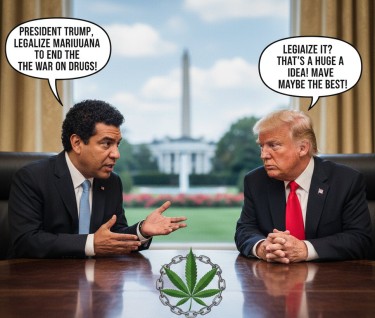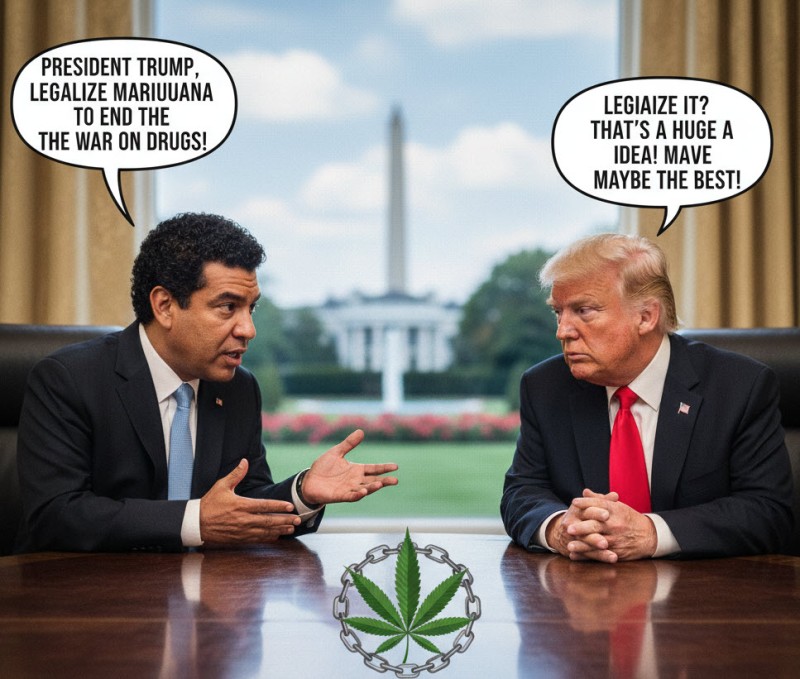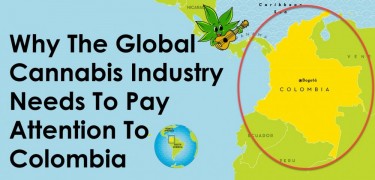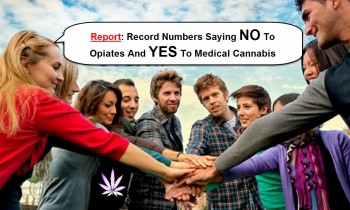
A President's Plea: Why Colombia's Petro Is Right About Legalizing Everything
When the Victim Tells You to Stop Shooting
Colombian President Gustavo Petro did something remarkable last week: he publicly told Donald Trump to legalize marijuana and end the War on Drugs. Not as an academic exercise or a progressive policy proposal, but as an urgent plea from a leader whose country has borne the brunt of American drug policy for over half a century.
"Colombia actually provides the money and the deaths in the struggle, while the U.S. provides the consumption," Petro wrote on X. "Consumption in the U.S. and the growing consumption in Europe are responsible for 300,000 murders in Colombia and a million deaths in Latin America."
This isn't hyperbole. This is the president of a nation that has been ground zero for the drug war since Richard Nixon declared narcotics "public enemy number one" in 1971. Petro proposed the opposite of Trump's current approach—which includes extrajudicial missile strikes on alleged drug boats—by suggesting the U.S. remove tariffs on Colombian agriculture, legalize cannabis exports "like any good," and "scientifically study whether prohibition is necessary, or rather responsible and state-regulated consumption build a more effective treaty."
This represents a historic moment: a sitting head of state whose country has suffered immeasurably from drug prohibition directly telling the United States to legalize drugs as a matter of international justice and practical policy. Petro isn't a fringe activist or an academic theorist. He's the elected leader of Colombia, and he's calling America's drug war exactly what it is—a failed policy that perpetuates violence, empowers cartels, and kills hundreds of thousands while accomplishing nothing.
The question isn't whether Petro is right. The evidence overwhelmingly supports his position. The question is whether American leadership has the courage to acknowledge decades of catastrophic policy failure and implement the solution that Colombia—the nation that's paid the highest price for our war—is begging us to adopt.
Colombia's Suffering: The Body Count of American Policy
To understand why Petro's plea matters, you need to understand what the drug war has done to Colombia. The statistics are staggering, but the human reality is worse.
The conflict between the Colombian government, leftist guerrillas, right-wing paramilitaries, and drug cartels—all intertwined with cocaine trafficking funded by American demand—killed over 260,000 people between 1958 and 2018. Eight million people were internally displaced. Tens of thousands were "disappeared." Villages were massacred. Journalists, politicians, judges, and police officers were assassinated by the hundreds.
Pablo Escobar's Medellín Cartel didn't just traffic cocaine—it waged war against the Colombian state with U.S. demand fueling every bullet and bomb. Escobar was responsible for thousands of deaths, including the 1989 bombing of Avianca Flight 203 that killed 110 people, the DAS Building bombing that killed 70, and the systematic assassination of presidential candidates, Supreme Court justices, and anyone who opposed him. American cocaine consumers funded all of it.
The Cali Cartel that succeeded Escobar's empire was no better. Neither were the paramilitaries that formed allegedly to fight guerrillas but primarily engaged in drug trafficking and terrorizing civilian populations. The AUC (United Self-Defense Forces of Colombia) committed massacres, forced disappearances, and mass displacement while controlling cocaine routes. American drug policy empowered every faction.
Plan Colombia, launched in 2000 with $10 billion in U.S. funding, was supposed to end drug trafficking through military intervention and coca eradication. It accomplished neither while causing massive environmental damage through aerial fumigation that destroyed food crops and poisoned water supplies. Peasant farmers growing coca—often because no legal crops were economically viable—were treated as enemy combatants. Tens of thousands were displaced by forced eradication programs.
The human cost extends beyond death tolls. Colombian children grew up in war zones. Women faced systematic sexual violence from all armed factions. Indigenous communities were displaced from ancestral lands. The social fabric of entire regions was destroyed. And for what? American cocaine consumption didn't decline. It remained steady or increased while Colombia bled.
Petro isn't exaggerating when he attributes 300,000 Colombian deaths to American drug consumption. If anything, he's being conservative. The drug war turned Colombia into a battlefield for American policy objectives that were never achievable through prohibition. Every death, every displaced family, every destroyed community can be traced back to the simple fact that Americans wanted cocaine, prohibition made cocaine incredibly profitable, and Colombia happened to be where coca grows.
The Case for Total Legalization: Not Just Cannabis
Petro specifically mentioned cannabis legalization, but the logic extends to all drugs. Here's why complete legalization and regulation makes more sense than continuing prohibition:
Cartel revenue collapse. Drug trafficking generates an estimated $400-600 billion globally. Remove prohibition, and that revenue disappears overnight. Cartels can't compete with legal markets offering quality-controlled products at prices reflecting actual production costs rather than prohibition premiums. Cocaine costs roughly $1,500 per kilogram to produce in Colombia. It sells for $30,000-50,000 in the U.S. That markup exists purely because prohibition creates artificial scarcity. Legalize production and distribution, and cartels lose 70% or more of their revenue base.
Without drug money, cartels can't afford to corrupt officials, buy military-grade weapons, or fund the infrastructure required for large-scale trafficking operations. They'd still engage in other crimes—extortion, kidnapping, human trafficking—but they'd be dramatically weakened. Money is power in criminal organizations, and drug prohibition provides unlimited money.
Removing the drug war shield. Human trafficking is the second-largest illicit market globally, generating roughly $150 billion annually. It's also the most morally reprehensible: slavery, sex trafficking, child exploitation. Yet law enforcement resources are overwhelmingly devoted to drug enforcement because drugs generate more arrests, more asset forfeitures, and more political support.
If we ended drug prohibition, those enforcement resources—billions in funding, hundreds of thousands of officers, extensive surveillance infrastructure—could redirect toward combating human trafficking. Imagine if the DEA's $3.1 billion annual budget focused on dismantling trafficking networks instead of arresting cannabis users. Within a decade, we could devastate trafficking operations that currently operate with relative impunity because law enforcement is busy fighting the drug war.
Decentralizing pharmaceutical monopolies. Prohibition doesn't just empower cartels—it protects pharmaceutical monopolies on drug manufacturing, research, and distribution. Legal, regulated markets for currently prohibited substances would break those monopolies. Why should Pfizer control opioid production when legal, regulated alternatives could exist? Why should patients depend on expensive patented medications when plant-based alternatives might work as well or better?
Decentralization means more research, more competition, more innovation, and lower prices. It means patients could access therapeutic substances without navigating pharmaceutical gatekeeping. It means researchers could study psychedelics, MDMA, and other prohibited compounds without bureaucratic obstacles that have stifled medical progress for decades.
Public health over criminal justice. Prohibition treats drug use as a crime requiring punishment. Legalization treats it as a public health issue requiring education, harm reduction, and treatment when needed. Portugal decriminalized all drugs in 2001 and redirected enforcement spending toward treatment. Drug use declined. Overdose deaths plummeted. HIV infections from needle-sharing dropped dramatically. Treating drug use as a health issue produces better outcomes than criminalization.
Quality control and safety. Prohibition means users never know what they're consuming—purity, dosage, adulterants. Fentanyl contamination kills tens of thousands because prohibition prevents quality control. Legal markets mean standardized products, accurate labeling, and consumer protection. Overdoses drop when people know what they're taking.
Addressing the Consequences: Education, Not Incarceration
Would legalizing all drugs create problems? Yes. Let's be honest about them.
Some people would try drugs they currently avoid due to legal risk. Addiction rates might increase initially, though evidence from decriminalization experiments suggests otherwise. Workplaces would need policies for impairment. Parents would need to secure substances from children. Public health systems would need expanded treatment capacity.
But these problems are manageable with education and regulation—and they're vastly preferable to prohibition's consequences. The money saved from ending enforcement ($51 billion annually on the drug war) plus tax revenue from legal sales could fund comprehensive education, treatment, and harm reduction programs.
Education becomes crucial. Teach people how to use substances safely—dosing, setting, avoiding mixing substances, recognizing problems, accessing help. Just as we teach responsible alcohol use, we could teach responsible drug use. Most people who try drugs use them recreationally without developing problems. Education helps people make informed choices.
Treatment must be accessible, affordable, and evidence-based. Drug courts that mandate treatment instead of punishment show promise but remain limited. Legalization revenue could fund treatment on demand—no waiting lists, no insurance requirements, no shame.
Harm reduction programs—supervised consumption sites, needle exchanges, drug checking services—prevent deaths and disease while connecting users with services. These programs work but remain illegal or underfunded in most jurisdictions. Legalization enables them to operate openly and effectively.
Would some people make poor choices? Yes. But prohibition doesn't prevent poor choices—it just adds criminal consequences that make bad situations worse. Someone struggling with addiction needs treatment, not incarceration. Someone using drugs recreationally needs education, not a felony record.
The question isn't whether legalization is perfect—it isn't. The question is whether it's better than prohibition. Given prohibition's body count, economic waste, and complete failure to reduce drug use, the answer is obvious.
The Sticky Bottom Line: Will Trump Play the Trump Card?
Will Donald Trump embrace comprehensive drug legalization? Probably not. Despite his unpredictability and occasional breaks from Republican orthodoxy, Trump has shown no indication of supporting anything beyond limited cannabis rescheduling. His administration is currently conducting extrajudicial killings of alleged drug traffickers and has designated cartels as terrorist organizations—escalating the drug war, not ending it.
But the symbolism of calling it a "Trump card" isn't entirely facetious. Trump prides himself on doing what others won't, on breaking with failed conventional wisdom, on making deals that seem impossible. Comprehensive drug legalization would be the ultimate Trump move—shocking, controversial, and potentially transformative. It would devastate cartels more effectively than any military campaign. It would generate massive tax revenue. It would free millions from criminal records. It would address the fentanyl crisis through quality control rather than interdiction.
Whether Trump has the vision or courage to make that move remains unknown. What's certain is that Gustavo Petro—representing a nation that has paid an unconscionable price for American drug policy—is offering the solution that evidence, logic, and basic humanity demand. Colombia has earned the right to tell America to end the drug war. The question is whether we're capable of listening.
Legalize cannabis. Legalize everything. Regulate production and distribution. Tax sales and fund education and treatment. Let cartels collapse from lack of revenue. Free law enforcement to focus on actual violent crime and human trafficking. Treat drug use as a public health issue requiring compassion, not a moral failing requiring punishment.
The War on Drugs has failed comprehensively for over 50 years. Colombia's president is telling us to stop. The evidence supports him. The only question is whether American pride can admit we were catastrophically wrong and implement the solution that's been obvious for decades. They don't call it a Trump card for nothing—but will he play it? Who knows.






